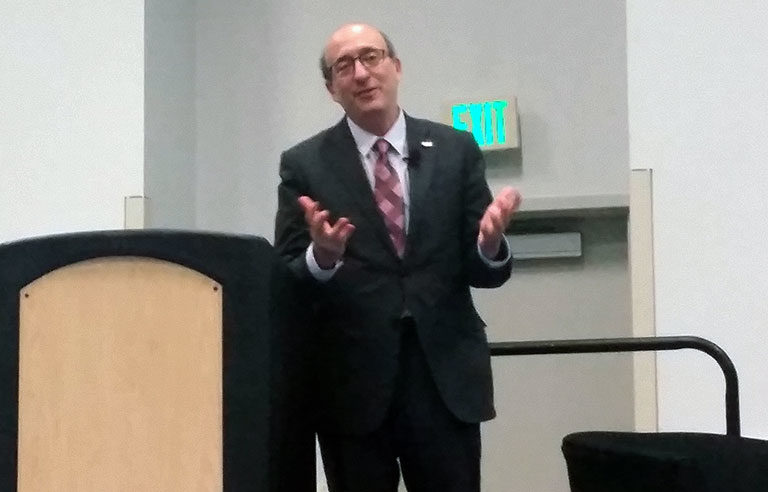Former OSHA head expects an emergency temporary standard ‘very early’ in Biden administration

Aurora, CO — Protecting the health and safety of workers during the COVID-19 pandemic will be a high priority for President-elect Joe Biden as he prepares to take office in January, according to former OSHA chief David Michaels.
That starts with OSHA issuing an emergency temporary standard on infectious diseases – something worker advocacy groups and some lawmakers have called for in recent months.
“I don’t think there’s any question that Biden will issue an emergency temporary standard very early in his tenure,” Michaels said during a Nov. 11 webinar on the post-election future of worker safety and health, hosted by the University of Colorado Center for Bioethics and Humanities. “I think you have to do that immediately. The importance of that is employers need to know what the rules are.”
During his presidential campaign, Biden released a 4-Point Plan for Our Essential Workers that called on the Trump administration to immediately release and enforce an ETS to give employers and frontline employees “specific, enforceable guidance” on reducing on-the-job exposure to COVID-19.
Michaels – who led OSHA for seven years under the Obama administration – said he expects an ETS from the Biden administration to include language on physical distancing, mask requirements and workplace ventilation.
“And if [employers] don’t do those things, they have to explain why,” he said. “It will have a huge impact, because standards are a wholesale way to deal with issues that inspections just do on a regional basis. Standards are powerful because many employers want to be law-abiding. They will follow a standard.”
Despite being pushed to issue an ETS on infectious diseases by lawmakers from both parties as well as via multiple petitions and lawsuits from labor unions, federal OSHA officials have consistently reiterated the agency’s position to use existing rules – including its General Duty Clause – to protect workers during the pandemic.
The agency also has relied on dozens of industry-specific guidance documents, which serve only as recommendations to employers. Michigan, Oregon and Virginia recently have issued ETSs in absence of one from federal OSHA.
Webinar co-presenter Matthew Wynia, a professor and bioethicist at CU, said OSHA guidance leaves open the opportunity for some employers to not follow it.
“The reason for standards is to establish a level playing field,” Wynia said. “You’ve laid a floor and said, ‘You cannot go below this.’”
Post a comment to this article
Safety+Health welcomes comments that promote respectful dialogue. Please stay on topic. Comments that contain personal attacks, profanity or abusive language – or those aggressively promoting products or services – will be removed. We reserve the right to determine which comments violate our comment policy. (Anonymous comments are welcome; merely skip the “name” field in the comment box. An email address is required but will not be included with your comment.)

